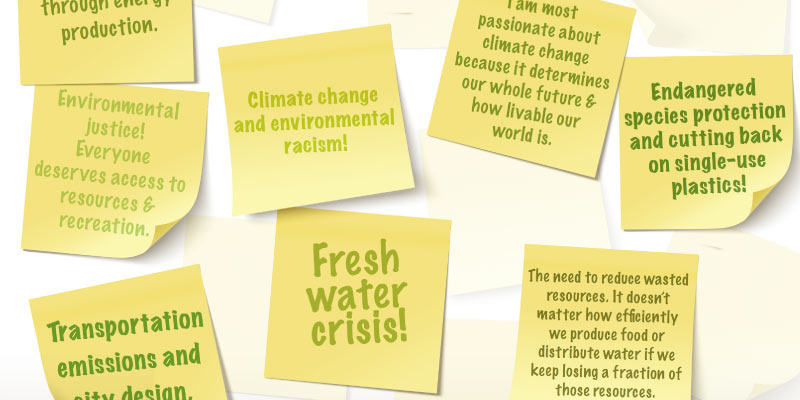 The first weeks of each UW–Madison fall semester are alive with activities, fairs, and events. Since 2013, one of those gatherings has been Sustain-a-Bash, a celebration in the heart of campus that brings together the UW’s sustainability community. Hosted by University Housing with support from the Office of Sustainability, the event is geared toward new students living in the residence hall — but all students are welcome.
The first weeks of each UW–Madison fall semester are alive with activities, fairs, and events. Since 2013, one of those gatherings has been Sustain-a-Bash, a celebration in the heart of campus that brings together the UW’s sustainability community. Hosted by University Housing with support from the Office of Sustainability, the event is geared toward new students living in the residence hall — but all students are welcome.
“Sustain-a-Bash gives a well-rounded, holistic look at sustainability,” said Breana Nehls, then-UW Housing sustainability and communications coordinator and Nelson Institute graduate. “It showcases a variety of ways that students can get involved on campus and by volunteering in the greater Madison community.”
This year’s Sustain-a-Bash was held on September 16 on the lawn of the Gordon Dining and Event Center. Attendees learned about UW Housing’s sustainability efforts — including the new Electric Eats food truck — networked with sustainability focused student groups like Slow Food UW and CLEAN, and even made smoothies with a bike-powered blender.
The Nelson Institute was also represented, networking with undergraduates interested in Nelson’s major and certificate programs. At the Nelson table, environmental studies senior Madeline Zwergel connected with students by posing a question: What environmental issue are you most passionate about, and why?
Here’s what current undergrads are thinking about when it comes to environmental and sustainability issues:
- Carbon emissions through energy production.
- Environmental justice! Everyone deserves access to resources & recreation.
- Transportation emissions and city design.
- Renewable energy access for all!
- Climate change and environmental racism!
- Fresh water crisis!
- I am most passionate about climate change because it determines our whole future & how livable our world is.
- Deforestation — big problem in my family’s hometown.
- Endangered species protection and cutting back on single-use plastics!
- The need to reduce wasted resources. It doesn’t matter how efficiently we produce food or distribute water if we keep losing a fraction of those resources.